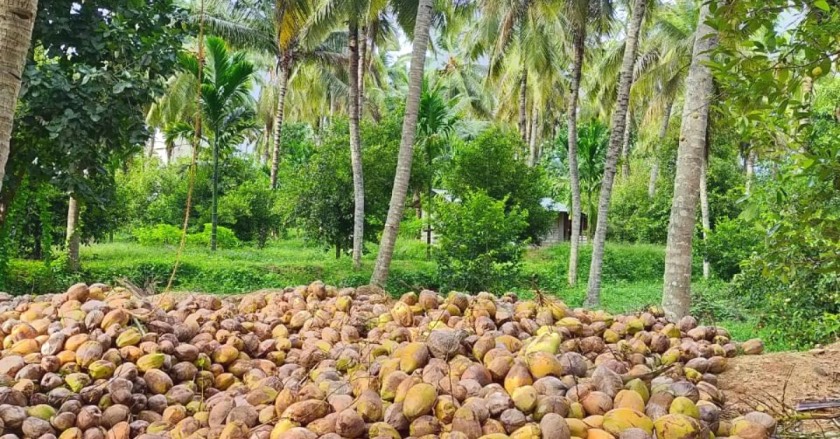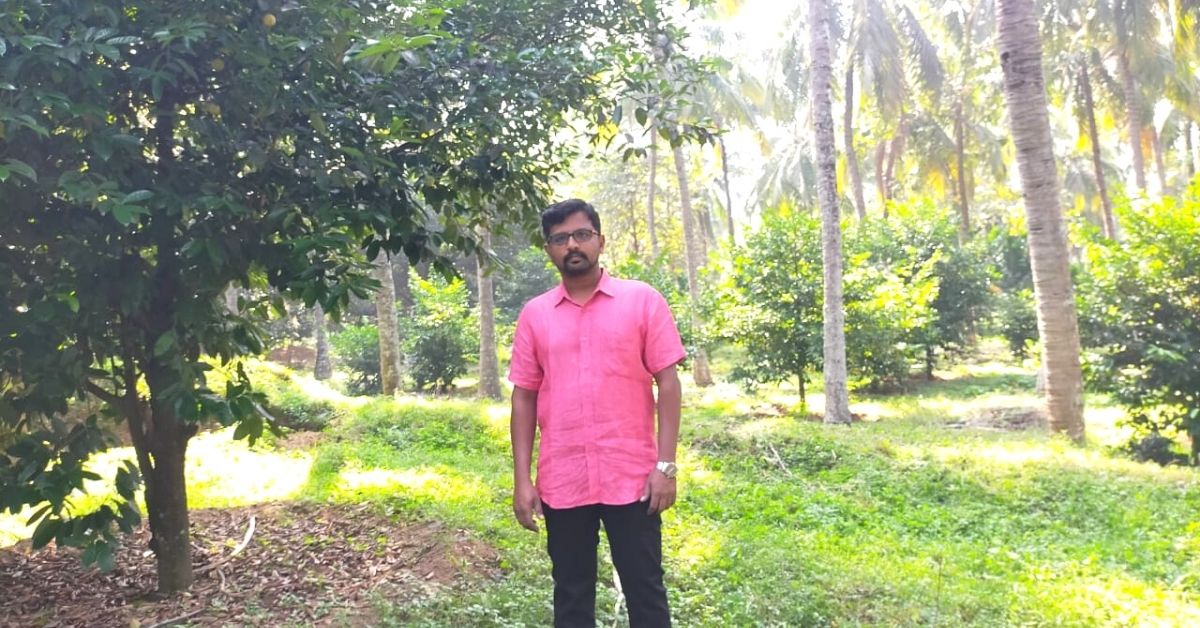S Sivaganesh completed his mechanical engineering in 2006 and worked as a contractor at an atomic power station in Rajasthan. However, he quit his job in 2010 to return home to Meenakshipuram, located at the Kerala-Tamil Nadu border.
His family owned about 27 acres of farmland, where he decided to try his luck with coconut farming and export the same. For the next couple of years, he experienced ups and downs as the business had untimely payments from traders or buyers in the UK.
Sivaganesh then decided to switch to organic farming for which he requested 6 acres of land from his father. Over time, he began to reap Rs 16 lakh income a year, out of which he earns up to Rs 13 lakh as profits. The state government lauded his efforts by giving him the Kera Kesari award in 2020.
Speaking with The Better India, he says the secret behind his success are a few farming techniques — including the intercropping method, a practice of growing multiple crops in close proximity, the drip-irrigation technique, among other agriculture-allied practices.
Farming, organically

“I planted nutmegs as an intercrop along the 1,600 coconut plantations and took up mango, turmeric, pepper, and areca nut plantations across my 6-acre farm as well. I used organic methods for all the crops,” says the 36-year-old, adding that he implemented drip irrigation with fertigation, a method to supply fertiliser through an irrigation system, to save on labour costs and use water judiciously.
With time, Sivaganesh created two rainwater harvesting ponds and started cultivating fish such as Rohu, Tilapia, Katla, Nutter, Mrigal (white carp) and other common species.
“The scientific and disciplined approach started reaping results. I added poultry, created green fodder for cows and a Neem Cake unit to be sold for animal nutrition. Besides, I started developing a nursery of 3,000 nutmeg and mango saplings. I earn Rs 2 lakh per acre as a combined income from all plantations,” he says.
The farmer says that though he receives a lot of praise and appreciation from the village folk today, this was not the case when he decided to take up farming. “When I quit my job, all the youngsters from the village were moving to lucrative IT jobs. Moving to the city for a corporate job was the norm and considered a ‘wise move’. The community said it was a mistake for me to return. I avoided social events or village ceremonies to shield myself from the criticism,” he says.

“However, my parents supported me all the way and are the main reason for my success,” Sivaganesh says.
He shares that he never regretted his decision. “I could experiment with my ideas and implement them too. I could execute, improvise and find multiple ways to improve the quality of my yield. I managed my work timings and lived a stress-free life. Today, I get satisfaction from my work,” he says.
He also shares tips and tricks with farmers in the village. “I do not wish to keep my success to myself. Many farmers seek advice and I am happy to share my expertise,” he says.
Sivaganesh says that his future plans include yarn manufacturing from coconut and experimenting with new ideas. “There’s no end to my urge to experiment with farming and the joy I get from its success,” he concludes.
Edited by Yoshita Rao
No comments:
Post a Comment